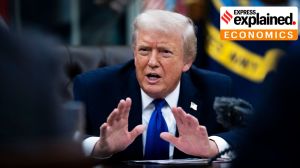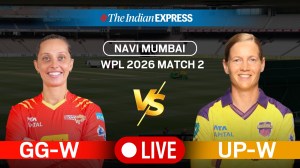Letters to the editor
The recent decision of the BCCI to sack former Indian captain Kapil Dev and ban the players who join the newly launched ICL...

Cricketing omission
8226; The recent decision of the BCCI to sack former Indian captain Kapil Dev and ban the players who join the newly launched ICL has surprisingly escaped criticism from the columns of your newspaper. Although the BCCI has drawn a lot of flak in the past from the media for its flawed selection policy and delirious election process, the recent actions of the Board have not been subjected to an honest and objective scrutiny. The BCCI8217;s attitudes are a part of its desperate attempt to eliminate any kind of competition. The BCCI until now has been the sole beneficiary of the high revenues that cricket generates. The launch of the ICL has made the board insecure about the continuation of its monopoly over the game and it is fearful of losing these big earnings. That is what makes it resort to tactics of banning players and sacking former players who have joined the 8216;rebel league8217;. The BCCI has started to resemble a bureaucratic organisation and malpractices and corruption have become a routine affair. Thus it would not be incorrect to term BCCI 8216;Bureaucratic Control of Cricket in India8217;.
8212; Rav Pratap Singh
Student, Panjab University
Coalition angst
8226; THE Indian Express is a powerful opinion maker, among the educated middle class. My views, however, are contrary to your editorial comment, 8216;Unique Political Angst8217; IE, August 22, wherein you have regarded coalition experiments in India with a degree of zest. You have given two examples of 8220;successful8221; coalitions: NDA under Vajpayee, and the United Front government but forgotten the tragic plight of both Deve Gowda and Gujral, with their constant attempts to pacify Congress president, Sitaram Kesari. You have also forgotten the misery of Narasimha Rao, who had to purchase votes for his government8217;s survival. It was for pragmatic reasons that advanced democracies like the UK and the USA have a two-party system. So should we vote for fractured legislatures or for one of the two national parties?
8212; Parimal Y. Mehta
Vadodara
Consensus unhoused
8226; IN your editorial, 8216;1942-20078217; IE, August 23, you have used expressions like 8216;national mainstream8217;, 8216;national moment8217; and 8216;national consensus8217;. You have not thought it fit to explain what in your definition these three terms are. It does seem to me that they mean to you the perceptions of the establishment. What the consensus is among the 60 per cent majority in the Parliament of a parliamentary democracy is of no consequence to you.
8212; Asim Majumdar
Merger yes, but8230;
8226; I WOULD say yes to V.S. Dharma Kumar8217;s query 8216;Can India and Pakistan unite?8217; IE, August 17. The parliamentary system which our freedom fighters, especially Jawaharlal Nehru, decided to adopt, is to blame for Partition. In 1937, elections in UP then United Province were held under Government of India Act. 1935, based on the Westminster model, and the Congress party secured a majority. The Muslim League which won even less than one-third of the seats wanted to share power proportionate to its seats. But the Congress party did not agree. This gave an idea to the Muslim League that Muslims would become second-class citizens in India and led it to its passing a resolution at Lahore in March 1940. But merger of India and Pakistan is possible only if both countries decide to switch to the presidential system, with true federalism. As is the case in the US.
8212; Dalip Singh Ghuman
Chandigarh
- 01
- 02
- 03
- 04
- 05































